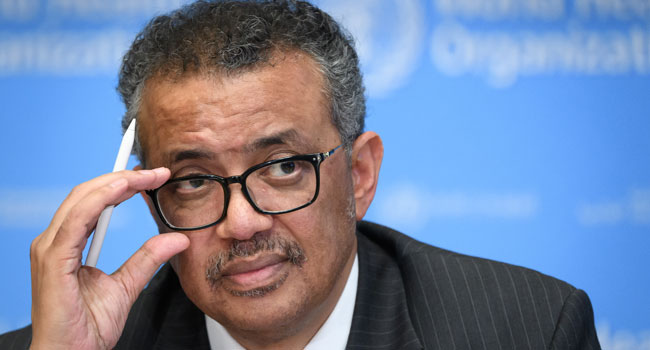
The World Health Organisation on Thursday said there was a need to increase investments in the global fight against tuberulosis.
WHO Regional Director for Africa, Dr Matshidiso Moeti, made the case for investments on World TB Day, which is observed on March 24 annually.
This year’s theme is “Invest to end TB. Save lives.”
“At the UN High-Level Meeting on TB in 2018, world leaders agreed to mobilize US$13 billion per year to finance TB prevention and treatment by 2022 and promised another US$2 billion per year for TB research in the face of growing concerns around drug-resistant TB,” Dr Moeti said.
READ ALSO: WHO Alarmed By Attacks On Ukraine Health System
“However, funding for TB prevention, diagnosis and treatment services continues to fall far short of estimated global needs, and the United Nations global target. In 2020, global spending on TB services fell to US$5.3 billion, and funding for research was US$901 million.
“While national strategic plans and accompanying budgets for tuberculosis have grown in ambition, mobilization of funding has not kept pace. In Africa, governments contribute only 22% of the resources required to deliver adequate TB services, with 44% going unfunded, seriously impeding efforts to reduce the TB burden.
“South Africa and Zambia are the best examples of high TB burden countries that have steadily increased domestic funding specifically allocated for TB. In 2020, South Africa provided 81% of domestic funding to support TB activities. Zambia has increased its domestic funding seven-fold since 2015.
“Increased funding from domestic sources and international donors is urgently needed if we are to counteract a reversal of the significant gains made against TB in the past decades. At the current rate of progress, the UN Sustainable Development Goals (SDGs) target of ending the TB epidemic by 2030 will not be achievable.
“To reach the target, TB incidence would have had to record an annual decline of 4% to 5% in 2020, increasing to 10% per year by 2025, and then to an average 17% annually in the following decade. In fact, the world saw an increase in the number of global TB deaths for the first time in over a decade in 2021. Contributing factors included reduced access to TB diagnosis and treatment, in the face of the COVID-19 pandemic.
“With 36% of all TB deaths occurring in Africa, failure to invest in the TB response is set to take a formidable toll on African countries. Increased investment can be a game-changer, and alleviate the preventable suffering and death of millions of our people.
“Today, I call on governments to mobilize additional domestic financial support for TB control, including contributions to the Global Fund, which last month launched its US$18-billion Seventh Replenishment campaign in a bid to counter the catastrophic impact of COVID-19 on the fight against TB.
“I urge all stakeholders to advocate for increased investment, and to ensure that TB services are integrated into the primary health care response. We must all also work more closely with our communities, leveraging their expert local knowledge to tailor response efforts for maximum impact.
“I appeal to donors, the private sector, civil society and academia to pay increased attention to urgently boosting investment in the fight against TB and in TB research, in order to accelerate technological breakthroughs and uptake of innovations towards ending TB by 2030.”


